Menu
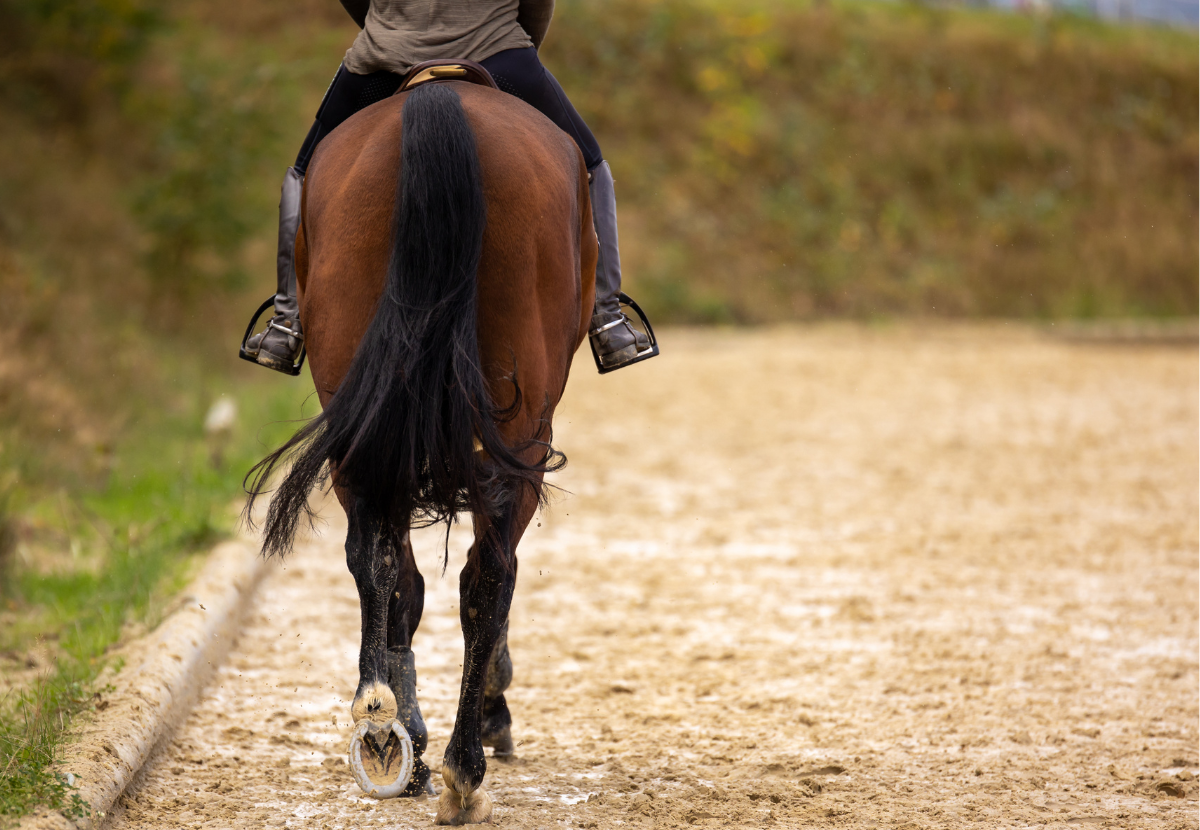
It is common knowledge that physical wellbeing is connected to mental wellbeing, so keeping the body intact and feeling good is an important fundament for mental state of mind. Most of us focus immensely on the wellbeing of the horse and its body. Many horses receive several types of body work, such as massage, physical therapy, chiropractic, light therapy, craniosacral therapy – the list goes on. But what about our own bodies? Do we sometime override the need for body work, that is so essential for mental wellbeing?
Whether you strive towards good performance, a comfortable horse or rehabilitation, it is no secret that body work can do wonders for many horses. But you should not dismiss your own body’s need for wellbeing and in this article, we would like to create awareness of the physical health of the human body. We will focus on physical therapy for horse riders, and therefore we spoke to the experienced physical therapist Trine Brix about improving horse riders physical and mental wellbeing.
Educated physiotherapist in Copenhagen in 1998, she also obtained a degree as a rider physiotherapist, where the horse is used as a therapeutic tool for people with different disabilities such as Parkinson's, scleroses, Downs and so on.
She has been a rider herself since the age of 11 and both her mother and daughter rides as well.
Fun fact: currently they all three share the same pony.
She has specialised in elite sports people, especially riders and has performed numerous screenings to test riders for their physical abilities. This way she has acquired enough knowledge to find the optimal training, diet and sleep balance for elite riders.

Physiotherapists help people affected by injury, illness or disability through movement and exercise, manual therapy, education and advice. The overall goal for physiotherapists is to maintain health and prevent injuries and diseases for their patients. Physical therapy often includes an individual, holistic approach.
Physiotherapists use different tools to help the body such as exercises for pain deduction, mobilising joints, strength and stability exercises, manipulation, massage, laser, shockwave and tape. Trine Brix emphasises that physiotherapy, and no form of body treatment, can be a stand-alone solution. She encourages to include physical training, massage and even bone manipulation such as chiropractic. Each treatment has its own strengths.
Some of the typical challenges that Trine Brix sees that riders have, are discomforts such as:
Trine Brix determines these issues to a lack of strength and mobility in the riders. “If you don’t have enough strength in your seat you will tend to use your neck instead to balance. This will cause pain and headache.”
If you have a habit of keeping your hands too far forward when riding, it will affect your seat and the body will become unbalanced. To compensate, the rider will experience pain in the neck and shoulders. If you don't have enough muscle strength in your abdomen or sit crooked, the rider will experience pain in the lower back and hip flexors.
In general, lack of strength will cause you to be unbalanced, which also causes imbalance for the horse. Therefore, Trine Brix explains that increased body awareness is essential to knowing how to use your body correctly as a rider.
Trine Brix
Always see a professional when it comes to creating the right training program as you can do more harm than good by training incorrectly.
Sit on the ball as shown in the picture, it helps with balance on the horse. With an resistance band, pull your arms apart and towards each other. Do the exercise for one minute
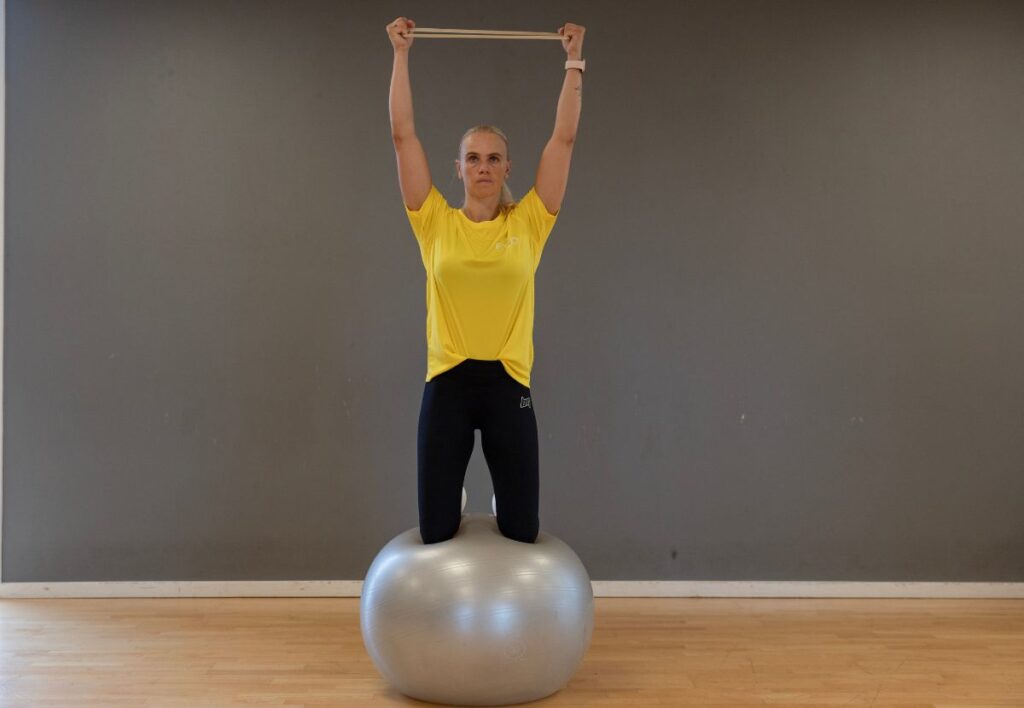
place your feet on the ball, which again helps with balance. Lift your pelvis up and down towards the floor for one minute
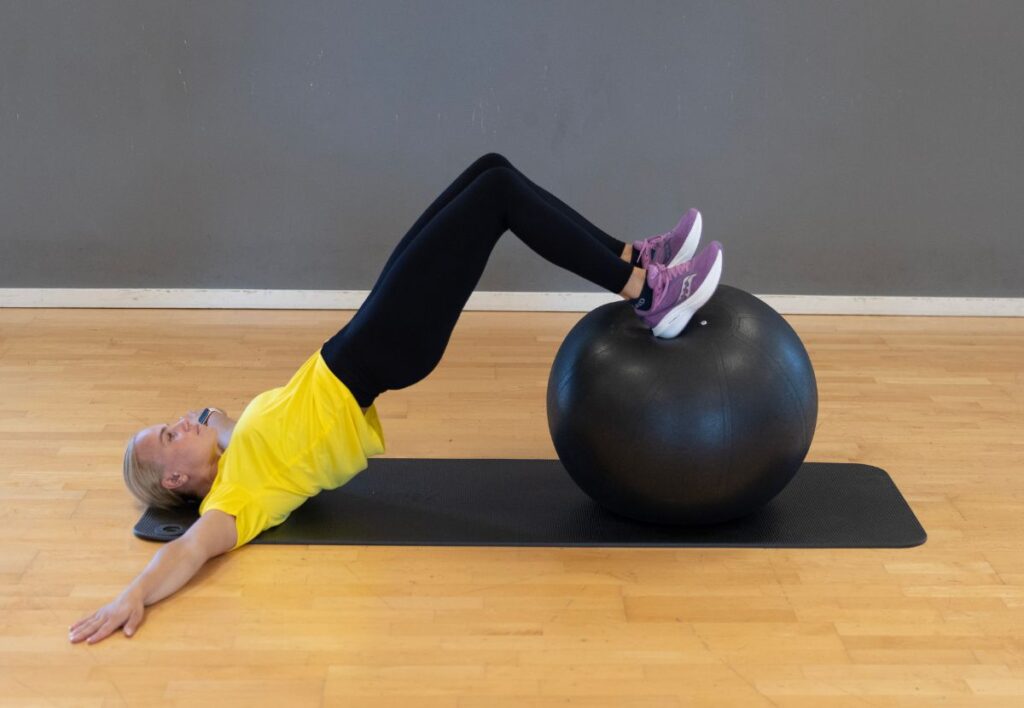
lie on your side as in the picture and keep your leg lifted horizontally. At the same time, keep the upper arm horizontally outward from the body. Hold for one minute
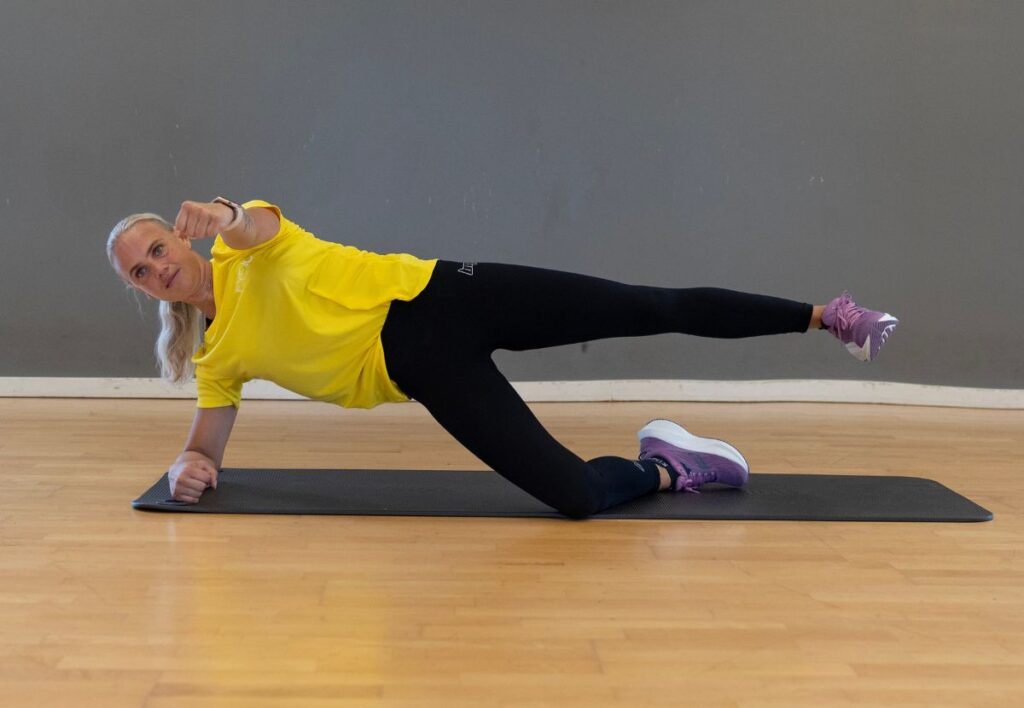
Trine Brix has a holistic view of the body and explains that she often sees lack of sleep and poor nutrition as possible causes of both physical and mental challenges. She finds that riders forget to eat when they are with the horse, which often results in food that can be bought from vending machines or cafeterias. She emphasises that a more nutritious diet is important.
Trine Brix advises elite riders to eat six times a day - three main meals and three snacks, as they are physically active from morning to late evening. Regular riders should just remember to eat 1 to 2 hours before riding and otherwise eat normally.
In addition, she also stresses the importance of drinking enough water - at least 1.5 litres, and more during physical activity.
That with poor sleep, you can't perform at the same level. Sleep deprivation of just one hour can cause a weakened immune system and can also affect your balance and coordination.
Marianne Vesterholt was diagnosed with multiple sclerosis in 2020 and decided to maintain her riding, which is how she found Trine Brix. Marianne finds that Trine and the training have done wonders for her health and her riding.
"Since I started training with Trine, I feel like I can keep up the pace for longer. My muscles don't get tired sas quickly when I'm in the stable. My physical fitness has improved a lot and I have become much stronger." - Marianne Vesterholt.
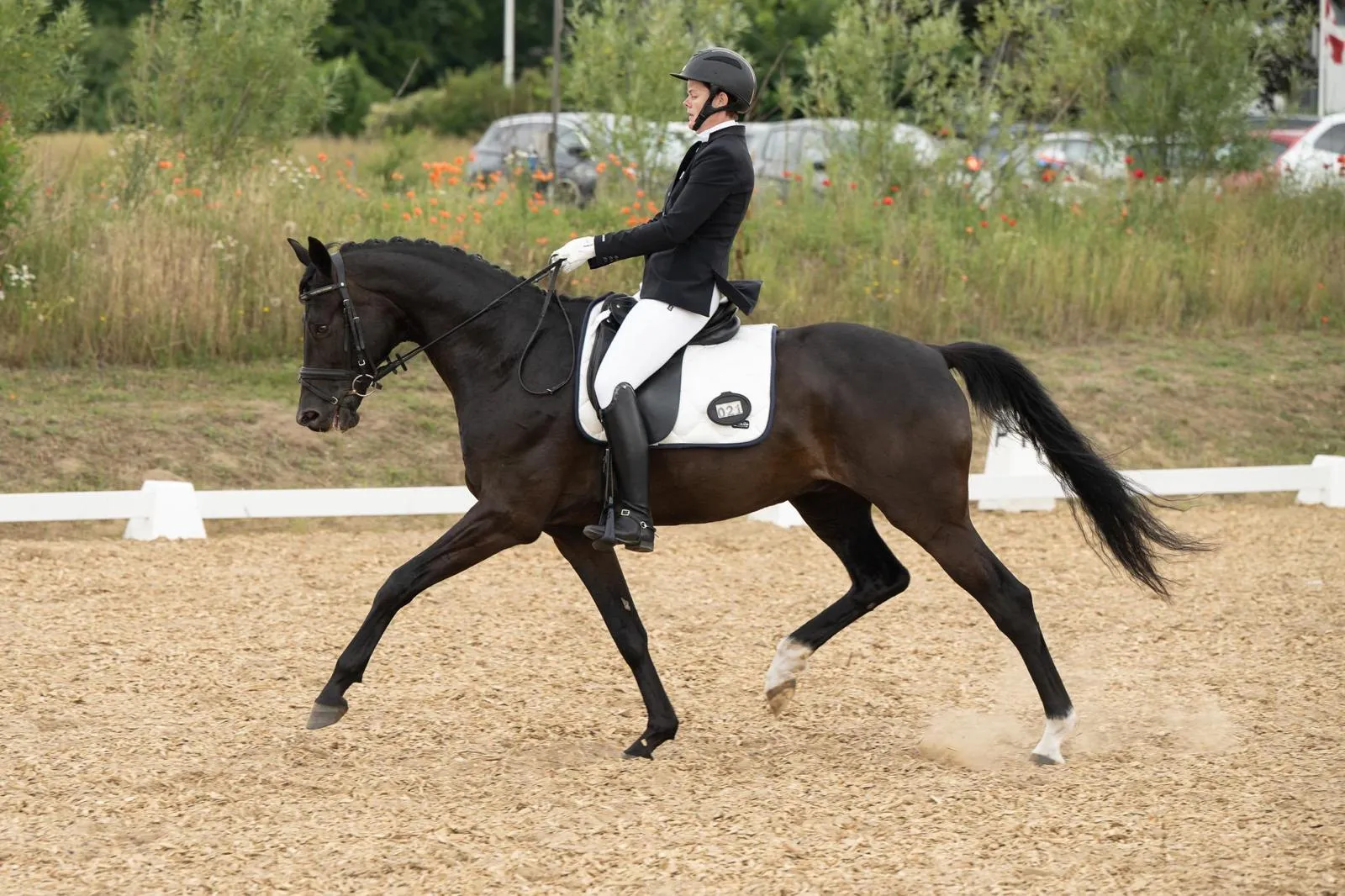
Trine Brix – https://fdaalborg.dk/
https://www.csp.org.uk/careers-jobs/what-physiotherapy
https://www.nhs.uk/conditions/physiotherapy
https://www.ncbi.nlm.nih.gov/pmc/articles/PMC1978403
https://www.healthline.com/health/sleep-deprivation/effects-on-body